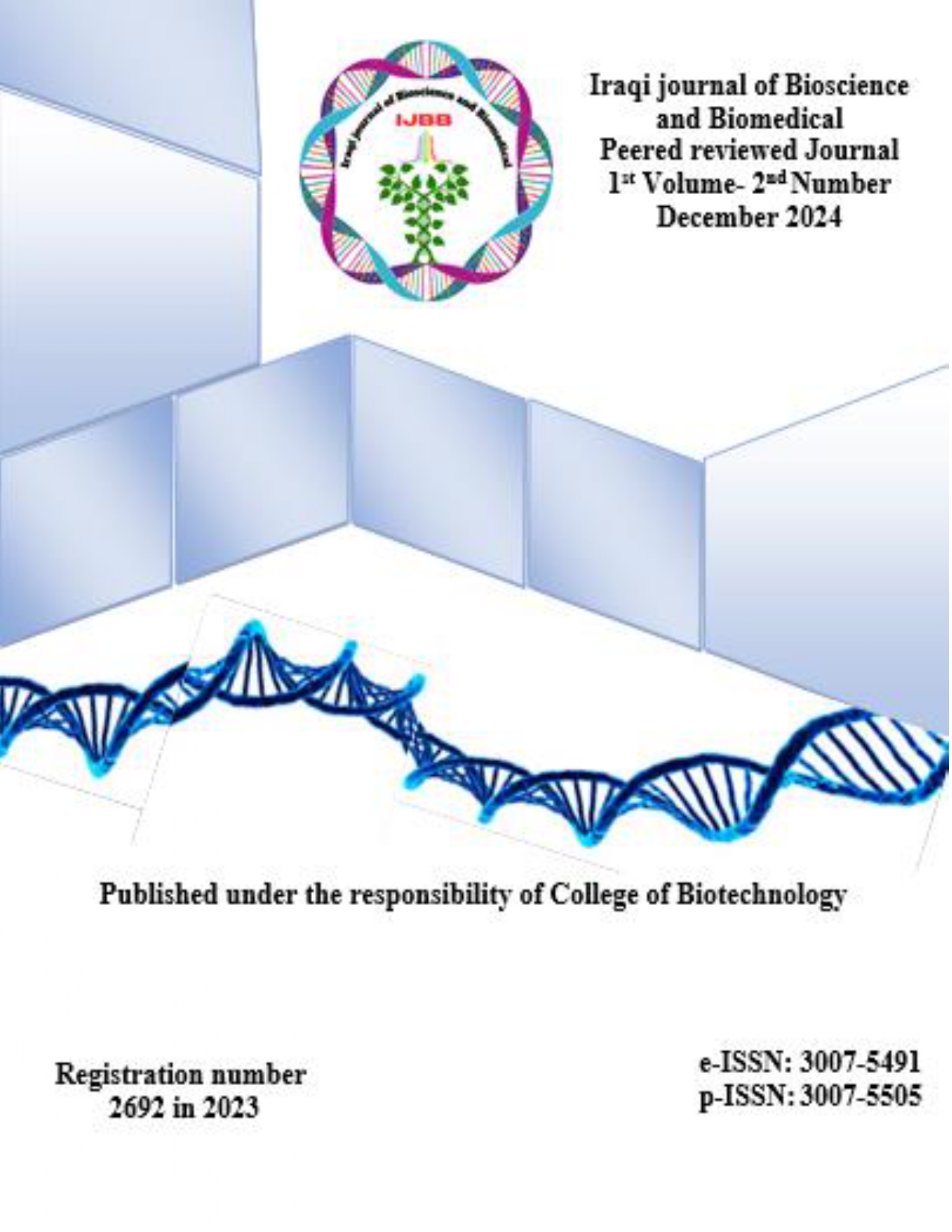Abstract
Pseudomonas aeruginosa is a Gram-negative aerobic bacterium that has become one of the most nosocomial pathogens. The main goal of this research project was to determine genotypes associated with LPS transport and antibiotic-resistance genes (lptD and lptE) of clinical isolates of P. aeruginosa. Characterization of the strains of P. aeruginosa that are widespread in Iraqi patients was done by collecting 140 clinical samples from wounds, burns, ear swaps, sputum, and urinary tract infections taken from seven general hospitals in Baghdad. Isolation methods for identifying P. aeruginosa relied on culture methods; 102 was positive growth while the remaining 38 had negative growth; biochemical tests and conventional culture method on selective media showed that only 50 from 102 isolates were P. aeruginosa VITEK-2 system was used to confirm the diagnosis, and also antibiotic sensitivity test, The results showed that 100% of these 50 isolates were P. aeruginosa. In this study, molecular techniques to identify P. aeruginosa, including DNA extraction and PCR, were used. To determine the presence of the virulence genes lptD and lptE, which play a role in lipopolysaccharide (LPS) transport across the outer membrane, polymerase chain reaction (PCR) was used to amplify specific regions of DNA. In conclusion, the prevalence of antibiotic-resistant P. aeruginosa strains among hospitalized patients presents a significant challenge in managing infections. These genes were found to be closely associated with LPS transport and, hence, the ability of these bacteria to resist antibiotics.
Keywords
Burn Wound Infection
LPS
lptD
lptE
P. aeruginosa
